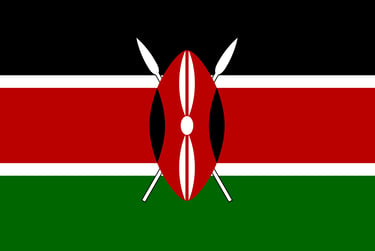Implement Healthcare System in Kenya
Implement an inclusive healthcare system with accessible, high-quality medical services to all Kenyan citizens.
HEALTHCARE
1/1/20242 min read


Kenyan Universal Healthcare (UHC)
The Kenyan government has taken a significant step towards to an inclusive healthcare system through the introduction of the Kenyan Universal Healthcare (UHC) program. This program aims to provide affordable and quality healthcare services to all Kenyan citizens, regardless of their socio-economic status and location.
Under the UHC program, the government plans to expand access to healthcare facilities, improve healthcare infrastructure, and strengthen the healthcare workforce. This will ensure that every citizen has access to essential healthcare services, including preventive care, treatment, and rehabilitation.
National Health Insurance Fund (NHIF)
The National Health Insurance Fund (NHIF) plays a crucial role in supporting the UHC program. The NHIF health insurance scheme aims to provide financial protection to Kenyan citizens against the cost of healthcare services.
Through the NHIF, Kenyan citizens can access a wide range of medical services, including inpatient and outpatient care, maternity services, surgeries, and specialized treatments. The NHIF helps to alleviate the financial burden of healthcare expenses and ensures that citizens can receive the necessary medical care when needed.
Addressing Health Disparities
An inclusive healthcare system must address health disparities to ensure equitable access to healthcare services. In Kenya, there are significant disparities in healthcare access and outcomes between urban and rural areas, as well as among different income groups.
To address these disparities, the government focus on providing basic healthcare infrastructure in rural areas and underserved communities. This includes building and equipping healthcare facilities, increasing the number of healthcare professionals, and providing training and support to healthcare workers.
Enhancing Healthcare Infrastructure
Investing in healthcare infrastructure is crucial for the success of an inclusive healthcare system. This includes upgrading existing healthcare facilities, ICT systems with national health database, building new hospitals and clinics, and ensuring the availability of essential medical equipment and supplies.
Additionally, the government prioritize the use of technology in healthcare delivery. Telemedicine and mobile health applications can help bridge the gap between healthcare providers and patients, especially in remote areas. This can improve access to healthcare services and enable timely medical consultations and follow-ups.
Efficient Healthcare Delivery
An inclusive healthcare system prioritize efficient healthcare delivery to ensure that citizens receive timely and appropriate care. This can be achieved through measures such as reducing waiting times, improving appointment scheduling systems, and streamlining administrative processes.
Furthermore, the government invest in health information systems to facilitate the sharing of patient summary information among healthcare providers according to governance policy and access rights of a cybersecure health database. This prevents duplication of tests and treatments, improve coordination of care, delivery of drugs and medicines, and enhance patient safety.
In conclusion, implementing an inclusive healthcare system in Kenya is essential to provide accessible, and affordable high-quality medical services to all citizens. The Kenyan Universal Healthcare program, supported by the National Health Insurance Fund, is a significant step towards achieving this goal. By addressing health disparities, enhancing healthcare infrastructure, and ensuring efficient healthcare delivery, Kenya improves the overall health and well-being of its citizens.
©2025 LuxeanaKenya






